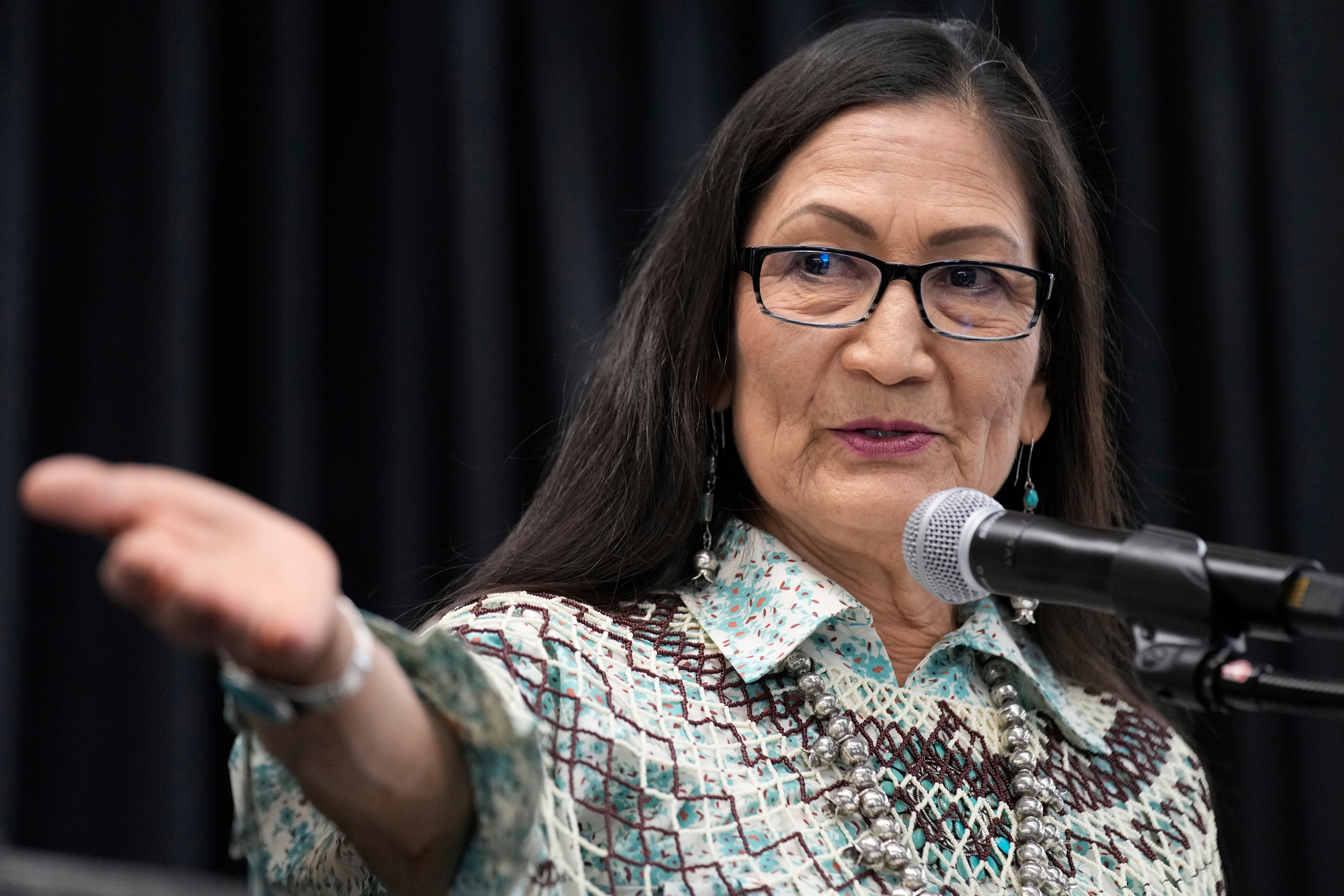Funding to support oral histories in boarding school era
The National Endowment for the Humanities is supporting an effort to record oral histories and digitize records on Indigenous boarding schools

Your support helps us to tell the story
From reproductive rights to climate change to Big Tech, The Independent is on the ground when the story is developing. Whether it's investigating the financials of Elon Musk's pro-Trump PAC or producing our latest documentary, 'The A Word', which shines a light on the American women fighting for reproductive rights, we know how important it is to parse out the facts from the messaging.
At such a critical moment in US history, we need reporters on the ground. Your donation allows us to keep sending journalists to speak to both sides of the story.
The Independent is trusted by Americans across the entire political spectrum. And unlike many other quality news outlets, we choose not to lock Americans out of our reporting and analysis with paywalls. We believe quality journalism should be available to everyone, paid for by those who can afford it.
Your support makes all the difference.The U.S. government is embarking on an effort to record the oral histories of survivors and descendants of boarding schools that sought to “civilize” Indigenous students, often through abusive practices.
The Interior Department announced a partnership with the National Endowment for the Humanities on Wednesday to document the experiences of thousands of Native American, Alaska Native and Native Hawaiian students at federally funded schools across the country.
The National Endowment for the Humanities is contributing $4 million for the project.
“The first step toward addressing the intergenerational consequences of these schools is to squarely acknowledge and examine the history of a federal system intended to separate families, erase Native languages and cultures, and dispossess Native peoples of their land,” National Endowment for the Humanities' chair Shelly Lowe said in a statement. Lowe is Navajo.
The endowment has supported other efforts, including a permanent exhibit on boarding schools at the Heard Museum in Phoenix and a project to digitize and transcribe records at the Genoa Indian School in Nebraska.
Interior Secretary Deb Haaland, who is a member of Laguna Pueblo in New Mexico, has prioritized publicly examining the trauma caused by the schools. The department released a first-of-its kind report pointing out 408 schools the federal government supported. Religious and private institutions that ran many of the schools received federal funding and were willing partners in assimilating Indigenous students.
The U.S. enacted laws and policies in 1819 to support the schools, most of which closed long ago. None still exist to strip students of their identities.
Victims and survivors of government-backed boarding schools have been sharing emotional stories during a “Road to Healing” tour organized by the Interior Department. They have recalled being locked in basements as punishment, hair being cut to stamp out their identities, and physical and mental abuse.
The Interior Department found in the first volume of an investigative report on boarding schools that at least 500 children died at some of the schools, though the number is expected to increase dramatically as research continues. A second volume is expected by the end of the year, the agency said.
The tour has made stops in Oklahoma, South Dakota, Michigan, Arizona, the Navajo Nation and, most recently in Washington on the Tulalip Indian Reservation.
The oral history collection is an extension of the tour and comes at the request of Indigenous communities, Haaland said. It will ensure that future generations can learn from those stories, she said in a statement. "This is one step, among many, that we will take to strengthen and rebuild the bonds within Native communities that federal Indian boarding school policies set out to break," Haaland said.